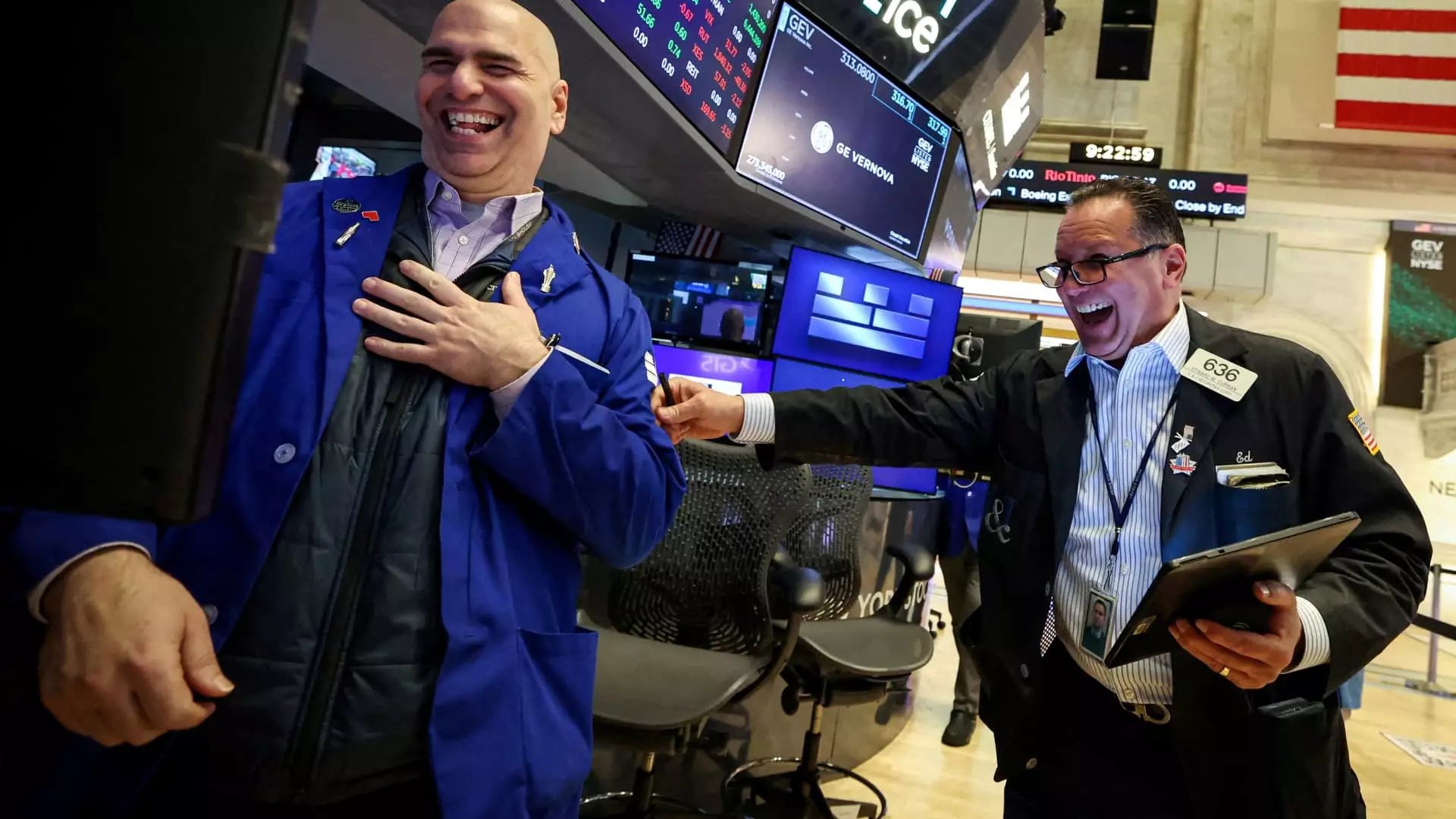In recent days, the stock market has experienced an astonishing rally that left many analysts and traders baffled. The supposed reason for this surge? A phenomenon tied closely to short sellers desperately attempting to cover their positions—an act that, in the world of finance, can only be described as frantic and often reckless. This volatile behavior among hedge funds points to a deeper issue within the market, showcasing the fragile relationship between investor confidence and the innate risks that accompany short-selling practices.
Short selling, while an essential part of market mechanisms, reflects a cynical bet against the success of companies. Hedge funds borrowing stocks to sell at a hope of repurchasing them at lower prices imply mistrust. When these shares defy expectations and rally, those same short sellers scramble, racing against time to limit their losses in what is known as a “short squeeze.” The mechanics of this process reveal a troubling cycle; the more bearish the market sentiment, the more vulnerable it becomes to sudden surges triggered by the very players betting against it.
The Role of Market Sentiment
The recent market uptick was largely unfounded in tangible news—merely a reaction to President Trump’s comments regarding trade negotiations and the Federal Reserve. This raises pressing questions about market dynamics: Is the rally built on a solid foundation of economic indicators, or merely the culmination of desperate maneuvers from short sellers looking to hedge their bets? The latter seems to be the case, leading skeptics to argue that we’re witnessing a manifestation of market manipulation.
The exaggerated movements led by the Dow Jones and S&P indices may feel euphoric to some investors, creating a false sense of security. Pundits caution that this relief rally exists on shaky ground, as John Flood of Goldman Sachs aptly noted, emphasizing that a significant number of hedge funds remain entrenched in their short positions. This raises alarms for prudent investors who might see through the thin veneer of progress; rather than genuine economic growth, what we are witnessing is a reflexive reaction to fear.
Will Caution Prevail Over Euphoria?
The lack of faith among hedge funds in their shift from short-covering to long-term buying strategies only serves to illuminate the precariousness of this moment. A true market rally is characterized by sustained confidence, yet the current situation is better described as a temporary “sugar rush,” with implications that could leave long-term investors feeling queasy rather than satisfied.
Why, then, are so many investors drawn into this current of speculative behavior? It may be that the allure of quick profits overshadows the inherent risks involved. Yet, this irrational exuberance often breeds consequences; a market built on impulse rather than prudence is destined for abrupt corrections. The complexities of investor psychology come into play here, where FOMO (Fear of Missing Out) drives behavior that could lead to significant long-term losses.
The Government’s Involvement
Another layer to this conundrum is the role of the government and current policies steering the stock market. By oscillating between stern talk and conciliatory gestures—be it on trade tariffs or Federal Reserve leadership—the administration creates an environment where uncertainty thrives. It would be naïve to believe that such interventions do not influence market confidence, particularly when rhetoric can easily overshadow fundamental economic metrics.
In the wake of President Trump’s wavering stance toward Federal Reserve Chair Jerome Powell, it is evident that political leaders can significantly sway market perceptions. This reality underscores the interconnectedness of politics with economic principles; the clearer the path perceived by investors, the more stable the market environment. However, when equivocation reigns, volatility becomes a staple.
Looking Forward: The Market’s Uncertain Horizon
As we gaze into the horizon of upcoming market conditions, the factors driving investor behavior hinge upon investor psychology, regulatory responses, and governmental policies. The two-day rally may lure many into a misleadingly optimistic landscape, masking the stark realities that could result from short-selling practices and manipulated market sentiment.
Listening closely to seasoned professionals, one should remain vigilant against the odds of an impending downturn fueled by unfounded enthusiasm. The stock market may paint a picture of prosperity, but those discerning enough to read between the lines will recognize the inherent risks lurking beneath the surface. At this moment, wisdom lies in skepticism rather than blind optimism.

